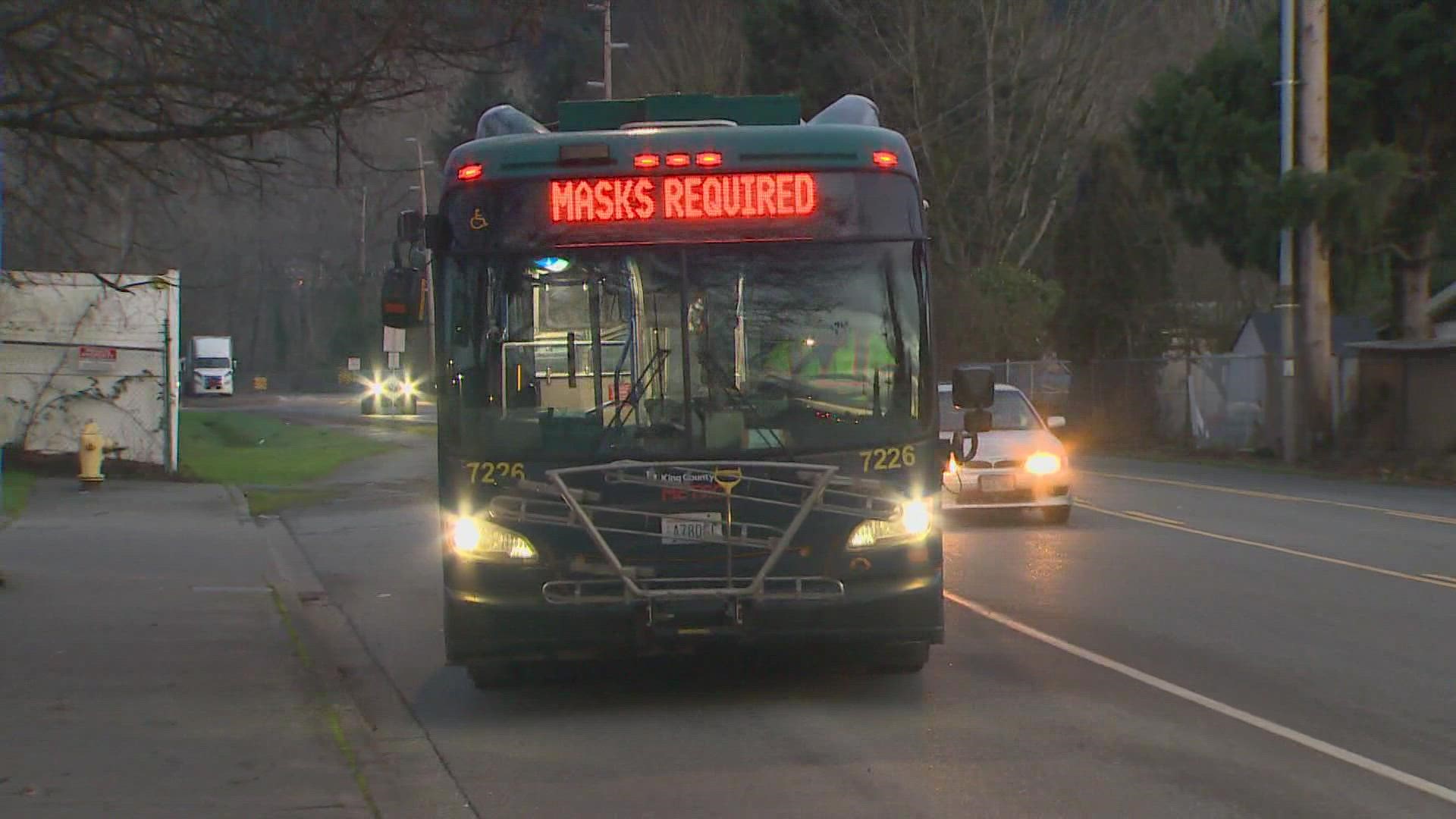SEATTLE — A King County Metro transit operator said drug use in buses on his routes has been getting out of hand and hopes the problem is addressed.
The driver declined to publicly provide his name because he is concerned about possible retaliation by his employer. But he spoke out on behalf of himself and other bus drivers that he says have been witnessing the same issue.
He said one type of drug use has been noticeably worse: fentanyl.
"It's always fentanyl. They have the tin foil and the straw, and they get on the bus. They get down where you can't see them," he said.
The driver said one stop on one of his routes at 12th Ave. and Jackson St. in Seattle's International District is exceptionally worrisome.
"I'd say in the last five months, it's taken a really hard left turn as far as drug use on the bus," he said, adding that he wants to see accountability.
"We want to see Metro protect its employers. We want Metro to better protect the operators who are moving the people, moving the city every day, every hour of the day," he said.
King County Metro spokesperson Al Sanders, in response to KING 5 questions about the rise in drug use, said Metro security and Metro transit police are working to increase their presence at Metro facilities and coaches to act as an increased deterrent to illegal activity.
"Drug use is a violation of Metro's Code of Conduct so a passenger could be subject to removal from the coach or transit facility (shelters, transit centers, and Park and Rides) and subject to a criminal citation. For our transit operators, their primary responsibility is the safety of their passengers. If they are notified by a rider of illegal activity on the coach, they may choose to engage the passenger or call for assistance if needed. All operators are in contact with Metro's Transit Control Center and can request law enforcement support if the situation warrants a police response," the statement said.
Another King County Metro driver, who also wanted to be unnamed, told KING 5 via phone that this is a greater issue on how drug enforcement is handled.
A spokesperson for the King County Sheriff's Office (KCSO) said the agency handles some law enforcement for King County Metro, but enforcement has been hampered by a state Supreme Court decision – known as the Blake decision – which decriminalized certain drug possession last year.
KCSO spokesperson Tim Meyer said despite the court decision, the department has made efforts to get drug abusers the help and wellness they need.
Ken Price, president of the Amalgamated Transit Union, which represents King County Metro transit operators, said in an email Saturday that the transit provider is asking for even more safety concessions and the acceptance of "smoking of drugs or other illegal activities" on buses.
Price is calling for funding for police to ride buses to better control the "drug trade."
"We need to get something done, it is unsafe to operate a bus right now," Price wrote.

